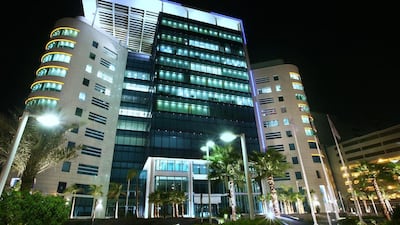The US$135 billion merger of Mubadala Development Company and International Petroleum Investment Company (Ipic) is set to increase the diversification of the Abu Dhabi economy and reduce costs.
The Abu Dhabi Government is merging the two investment titans amid a spate of consolidation across the emirate.
A joint committee headed by the Deputy Prime Minister Sheikh Mansour bin Zayed will be created and given the responsibility of merging the pair, Wam said yesterday. The news agency did not give a timeline for the merger.
“The combined entity will realise synergies and growth in multiple sectors including the energy and utilities sector, technology, aerospace, industry, health care, real estate and financial investments,” Wam said.
“It will also have the ability to contribute more significantly to the diversification of the economy, in line with the Abu Dhabi Plan and the country’s long-term vision.”
The combined entity will have assets of about US$135 billion, based on the latest financial reports from Mubadala and Ipic.
A source close to the merger said that it was too early to assess the impact the combination would have on jobs.
More clarity on how the merger will be done, what the new entity will be called and who will lead it should come within the next six months, the source added.
Chavan Bhogaita, the global head of markets insight strategy at National Bank of Abu Dhabi, said the merger would have the scope to achieve “meaningful synergies and greater efficiency”.
He added: “Ultimately the combined entity would be better placed to help the emirate diversify its economy and be better aligned to Abu Dhabi’s long-term vision.”
“Undertaking such measures should help the emirate to be better positioned to face any challenges in the longer term, and also to achieve its significant ambitions.”
Garbis Iradian, chief economist for the region at the Institute of International Finance, estimated that cost savings from the deal should work out to about 20 per cent.
The decision to merge Ipic and Mubadala comes weeks after National Bank of Abu Dhabi and First Gulf Bank started merger talks aimed at creating the biggest lender by assets in the Middle East.
The state-owned energy firm Abu Dhabi National Oil Company (Adnoc) is also streamlining operations across all of its activities in an effort to drive efficiency, performance and profitability in the business.
Mubadala and Ipic roughly have the same amount of assets under management, making it more a marriage of equals that has few overlaps.
Less than 20 per cent of Mubadala’s assets are energy-related, whereas for most of IPIC’s are in that sector. And while Mubadala’s focus is on the Abu Dhabi economy, Ipic mainly invests abroad.
Mubadala has stakes in Emirates Global Aluminium, the green-energy firm Masdar, the property developer Aldar and a host of other companies. It also has stakes in GE and the private equity firm Carlyle Group. Ipic owns the Spanish refiner Compañia Española de Petróleos (Cepsa) and the Abu Dhabi diversified investment firm Aabar. It also has stakes in energy companies, such as Austria’s OMV, the Austrian petrochemical firm Borealis and the Canadian petrochemical maker Nova Chemicals. Aabar has stakes in commodity trader Glencore and Italian bank UniCredit.
Mubadala’s profit last year rose 12.3 per cent to Dh1.1bn amid higher revenue from activities including oil and gas, semiconductors and aerospace and engineering services despite challenging global economic conditions.
Ipic’s first-half profit last year was nearly flat at $1bn from 2014.
Ipic is currently in a long-running dispute with the Malaysian government over its investment in strategic state fund 1Malaysia Development (1MDB), which was set up in 2009 by Malaysia’s prime minister Najib Razak.
Earlier this month, Ipic filed with a London court to arbitrate its claim against entities of the Malaysian government for $6.5bn.
Four years ago, Ipic guaranteed $3.5bn of 1MDB bonds but claims it has not received payment for the guarantee or other monies and interest owed.
Abu Dhabi’s consolidation drive is part of wider plans to shore up non-oil growth in the emirate, which is expected to contribute 64 per cent of GDP by 2030 from about 50 per cent in 2014. The economy of Abu Dhabi, which relies on oil, is forecast to grow by 1.7 per cent, down from 4.4 per last year, according to the IMF.
After two years of oil prices not seen in more than 10 years, the government of Abu Dhabi is accelerating its efforts to diversify the economy.
The emirate holds about 9 per cent of the world’s proven oil reserves and funds more than 60 per cent of its budget from the sale of hydrocarbons. In recent years it has been boosting investments in industrial projects such aluminium production.
dalsaadi@thenational.ae
* with additional reporting by Mahmoud Kassem
Follow The National's Business section on Twitter

